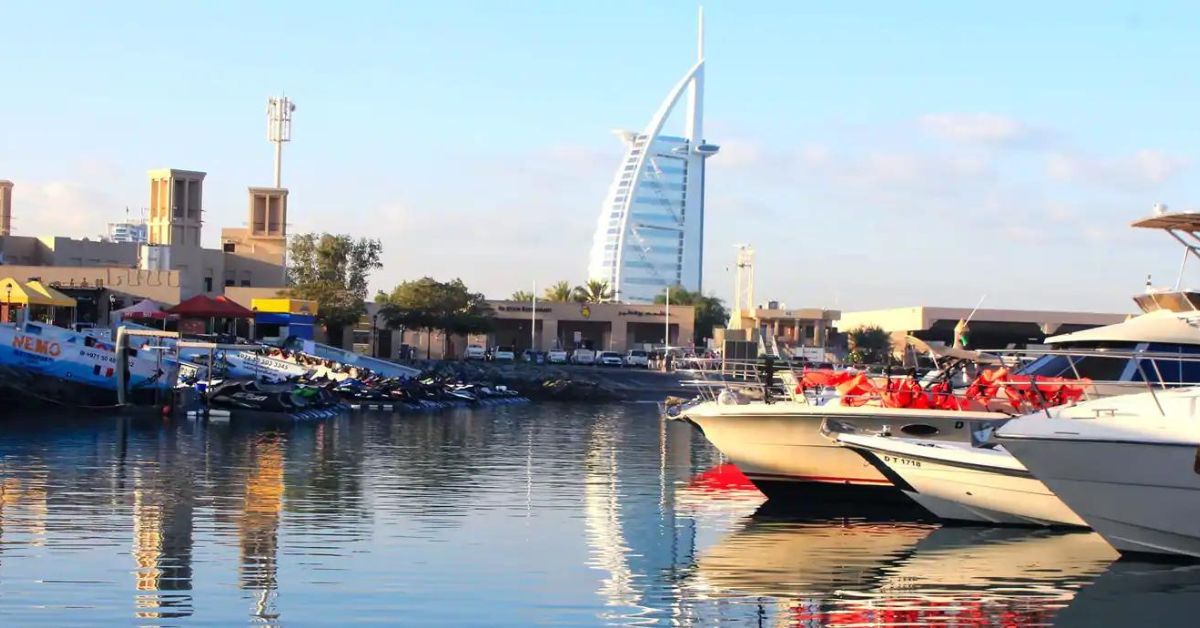DUBAI, UAE — Dubai, one of the seven emirates that make up the United Arab Emirates, has become one of the world’s top tourist destinations. It’s a city of extremes, boasting the world’s tallest building, the largest shopping mall, and the first seven-star hotel.
However, Dubai’s rise as a global tourist hotspot is far from typical. Just a few decades ago, Dubai was a modest fishing village along the coast of the Persian Gulf. It was a budding city with little to offer tourists.
The city’s transformation began in the 1960s. The discovery of oil brought newfound wealth, which the government channeled into infrastructure and development. Dubai constructed new roads, bridges, airports, and some of the globe’s most recognizable landmarks.
By the 1980s, Dubai was prioritizing tourism as a primary economic driver. Significant funds were allocated to marketing and the creation of tourist attractions.
These investments have yielded significant returns. Today, Dubai stands as one of the most sought-after tourist destinations, drawing in millions of visitors annually. From its modest start, welcoming approximately 400,000 visitors in the mid-1980s, Dubai is now set to break its own records.
In just the first half of 2023, the Emirate welcomed 8.55 million visitors and is projected to exceed its previous record of 16.7 million annual visitors set in 2019.
“Numerous factors have played a role in Dubai’s ascent, culminating in its recognition as the top global destination in the 2023 TripAdvisor’s Traveler’s Choice awards,” Vivek Madan, Principal at Strategy& Middle East, told TRENDS in an interview.
He believes that Dubai skillfully leveraged its “inherent benefits” and combined them with strategic “engineered advantages” to achieve this monumental success.
Dubai’s meteoric rise as a global tourist hotspot, according to Madan, is attributed to a combination of inherent benefits and engineered advantages.
Inherent Benefits
Geographic and Climatic Positioning: Dubai’s strategic location places it at the intersection of major markets in the East and West. Within an 8-hour flight, it’s accessible to two-thirds of the global population. Its climate also positions it as a prime ‘winter sun’ destination.
Historical and Cultural Links: Historically a regional trading hub, Dubai’s tax-free incentives for expatriates have deepened cultural ties. This not only boosts ‘word-of-mouth’ advocacy but also attracts a significant number of tourists visiting friends and relatives (VFR).
Engineered Advantages
Foresight and Early Investment: Dubai’s early investments in the Travel and Tourism sector, such as Emirates, its airport, and hospitality assets, gave it a ‘first mover advantage’ over regional competitors. Iconic landmarks like the world’s busiest airport, tallest building, largest shopping mall, and highest infinity 360° pool have bolstered its aspirational appeal.
Unified Approach: Dubai showcases a cohesive strategy in destination development and management, from policy-making to operations. Entities like the Dubai Corporation for Tourism and Commerce Marketing, Dubai College of Tourism, and the Dubai Festivals and Retail Establishment operate under a unified umbrella, enhancing coordination.
Diversified Offering: Catering to various ‘travel purposes’ like sun and beach, entertainment, shopping, and adventure, Dubai offers a wide range of options across different price points. The even distribution of hotel room inventory across categories ensures a balanced tourism offering.

Free Market Operations: Dubai’s free-market stance empowers private and SME players to enrich its tourism sector with diverse products and experiences.
In essence, Dubai’s blend of natural advantages and strategic initiatives has cemented its position as a premier global destination.
Marketing and Distribution: Dubai has established a strong presence in the travel trade of key source markets. It consistently ranks among the top destinations promoted by the travel industry in several major markets. This creates a beneficial cycle where high demand (due to its appeal) is met with ample supply (due to its prominence in distribution channels).
Well-Codified Refresh Cycle: Dubai is ever-evolving, ensuring it always has something new to offer, even to repeat visitors. This is evident in its marquee assets, from the Palm Jumeirah and Burj Al Arab in the early 2000s to the Expo 2020 and Museum of the Future in the early 2020s, and the anticipated Dubai Creek Tower. Additionally, the city continually updates its attractions, entertainment, and F&B offerings.
Handling of ‘Shocks’: Dubai’s resilience during major external crises, such as the 2008 financial crisis and the COVID-19 pandemic, has bolstered its reputation as a safe and robust destination.
Oliver Kent, Managing Director of ZK Sports & Entertainment, praises Dubai’s transformation from a village to a leading tourist hub. He attributes this to its visionary leadership, strategic decisions, and unwavering commitment to excellence. “Dubai’s adaptability to changing trends ensures its continued prominence in global tourism,” Kent remarked. He also noted that while Dubai is recognized as a luxury destination, there are ongoing efforts to diversify its offerings to appeal to a wider range of tourists.
Oana Radu, Investment and Global Mobility Advisor, echoes this sentiment, stating that luxury is synonymous with Dubai, but its allure is universal. “From budget travelers to those seeking lavish experiences, Dubai welcomes everyone,” she said.
Radu also highlighted Dubai’s unique blend of traditional and modern attractions, from age-old souks to the latest luxury brands, offering a shopping paradise for visitors from all over the world.
She is optimistic about Dubai’s future in tourism, believing that its leaders will continue to innovate. With a focus on sustainable tourism, technological advancements, and comprehensive experiences, Dubai is well-positioned to adapt to the ever-changing global travel landscape.








